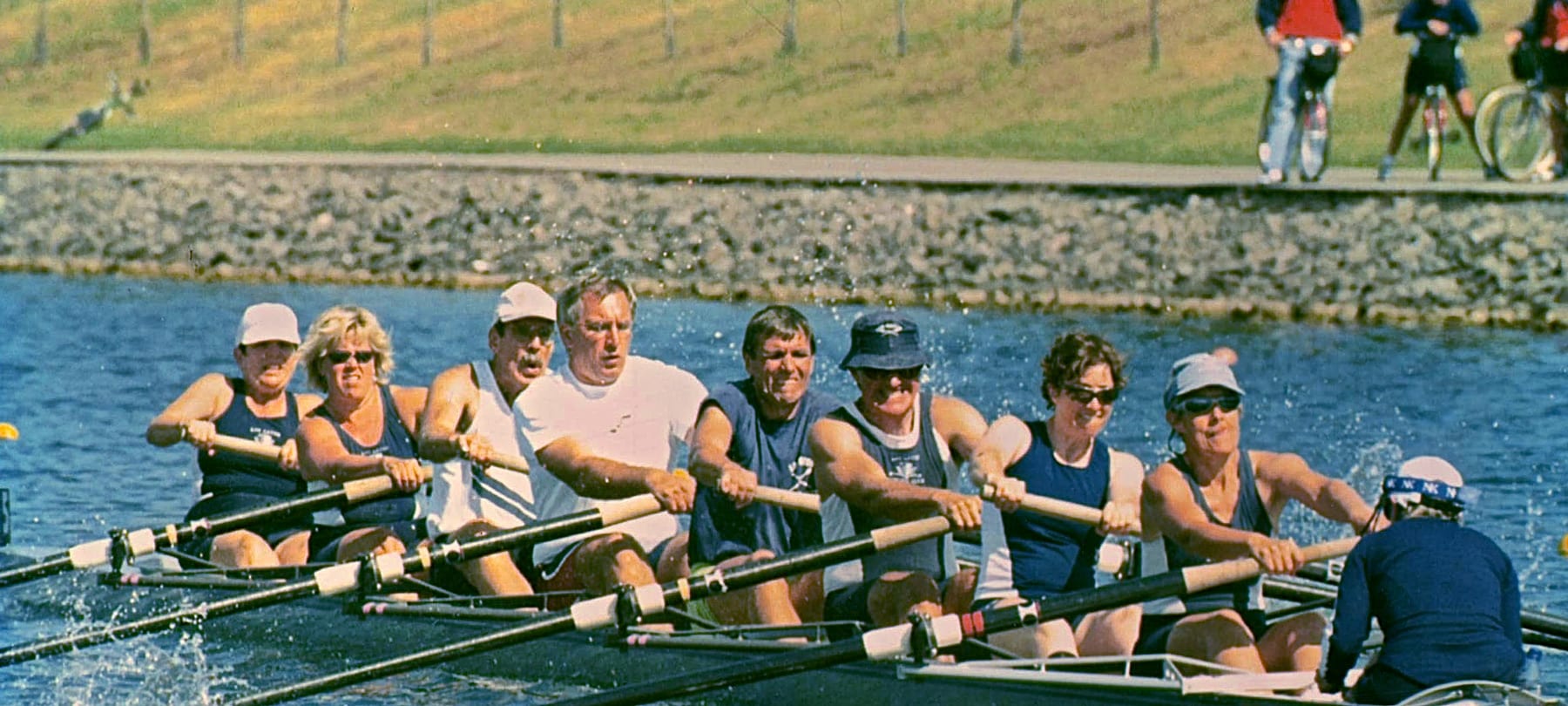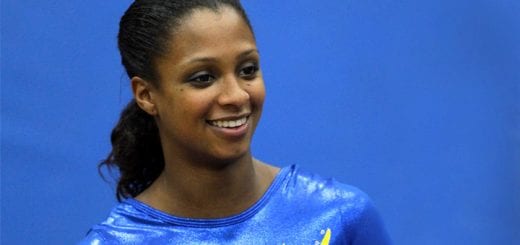Shirley Reekie: Sailor, Rower, Professor
Kinesiology Professor Shirley Reekie first learned about Margaret Jenkins, San Jose State’s first Olympian, after the 1984 Olympics in Los Angeles. Reekie had joined the faculty at SJSU in 1982, not long after writing a dissertation on the history of woman participation in sport in Great Britain. Drawn to Jenkins’ story, Reekie sparked a friendship with the decorated athlete and invited her to speak to her class.
“She was a feisty old bird,” says Reekie. “And I mean that in the nicest possible way. When she was a student at San Jose State, she was picked for the 1928 Olympic team. She had done most of her training in javelin but switched to discus on hearing that javelin was not included for women. But when she returned from Amsterdam, having finished sixth, she told me she was failed in a class in the women’s PE department because she had been, quote, ‘too competitive.'”
In the early 1920s, woman student-athletes at San Jose State (then San Jose Teachers College) were given two options: participate in friendly “play days,” where they would play on teams with other colleges, as opposed to against them, and telegraphic meets. Jenkins and her teammates were not allowed to compete in the company of their opponents—to do so would foster too much competitive spirit, which was associated with myths about the alleged stress that athletics could have on the female body. Instead, athletes would compete on their home campuses in sports like swimming or track and field and have their scores communicated via telegraph to learn the results.
Through her research, Reekie learned that the way sport was marketed in the early 20th century impacted who competed—and to what extent they could compete. Her book Bean Bags to Bod Pods: A History of 150 Years of San Jose State University’s Department of Kinesiology (Mill City Press 2012) explores shifting cultural attitudes about gender and sport. Among the myths she uncovered: Women were “too highly strung emotionally;” they would develop an “undesirable notoriety” and their menstrual cycles would somehow interfere with their participation. (Reekie 84) Despite these popular beliefs, many woman student-athletes like Jenkins pursued sport at San Jose State.
As a lifelong athlete and teacher of rowing, sailing, kayaking, physical education and sport history, Reekie has sought out alumnae, faculty members and academics whose careers defied cultural expectations. For Reekie, who first hopped aboard her father’s 12-foot sailboat at age two and started racing at six, Jenkins validated her belief that sport communicates much more than a competitive spirit.
“I think sometimes sport can be very useful in changing people’s perceptions,” she says. She calls sport the “wonderful playground” where athletes and leaders can use their platforms to express social messages.
When she is not teaching, Reekie can usually be found on a boat. As a member of the Los Gatos Rowing Club, she competes in regattas and finds time to sail and kayak. When she teaches, she instructs her students to leave behind their cell phones. At first they protest, but by the end of the semester, she hears them say, “Wasn’t that amazing?” By awakening her students to their environment, unplugging them from routine and introducing them to sport, Reekie is following in Jenkins footsteps—something she takes quite seriously.
“I’ve got a very soft spot for Margaret,” she says. Jenkins would apparently bike from her home near present-day Moffett Field to SJSU, to Stanford to train with her coach and back again. Reekie says that she admires Jenkins’ unstoppable focus and commitment. “She qualified to be a PE teacher and taught in the area for many, many years. I imagine she fostered exactly that spirit in all of her students.”







ofcourse no phones in the water… I thought it was just me but indeed everyone as the story about the sport they like, I like kayaking it helps to express gratitude towards nature and the things I am blessed with… and relief the rush and messiness of day to day life… indeed everyone should have some sport under the there belt… Thanks for sharing the story 🙂
https://pickakayak.com